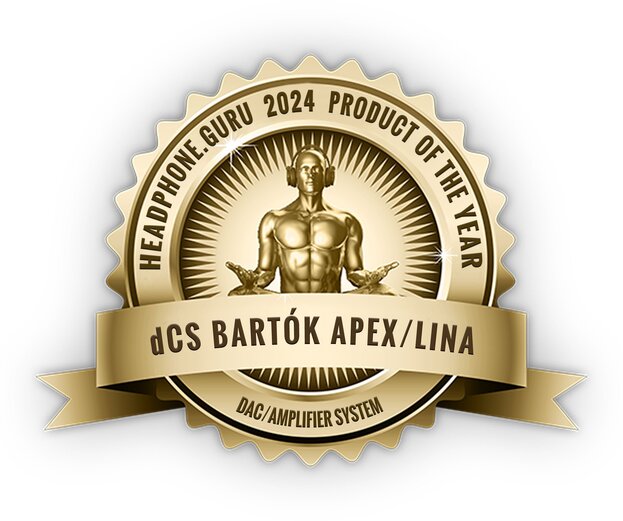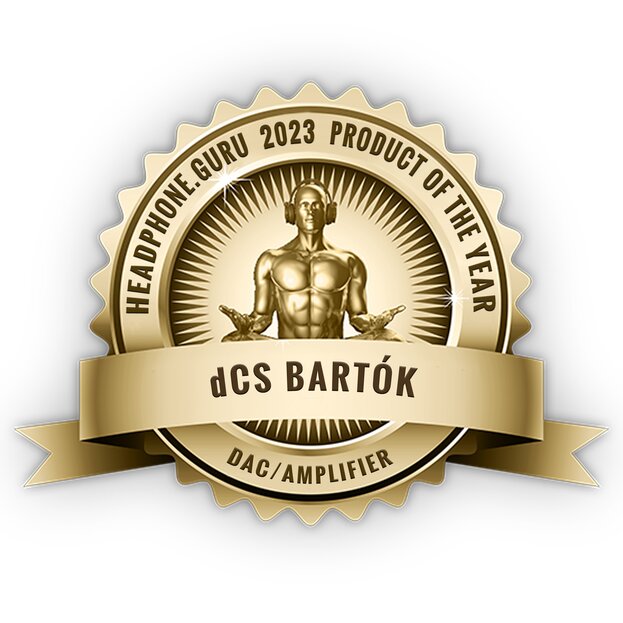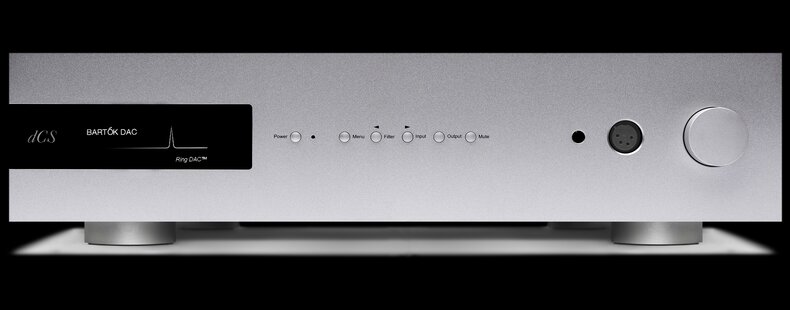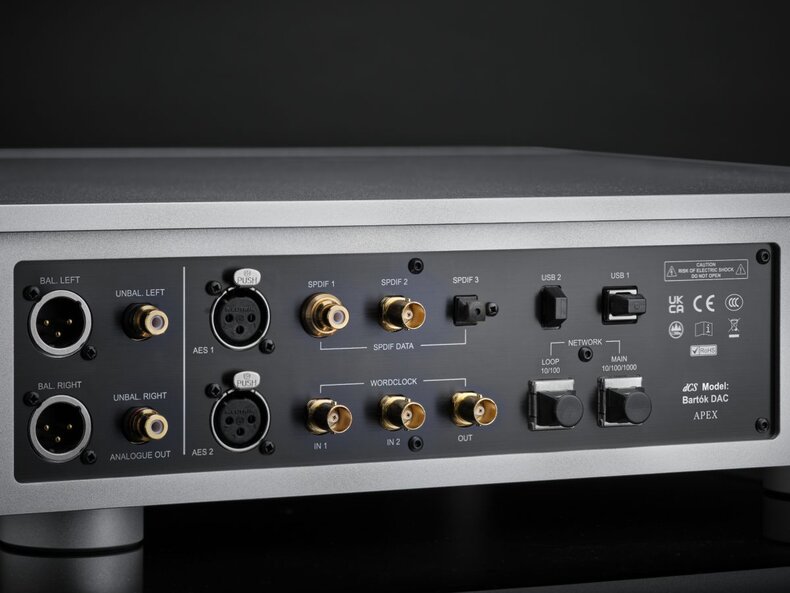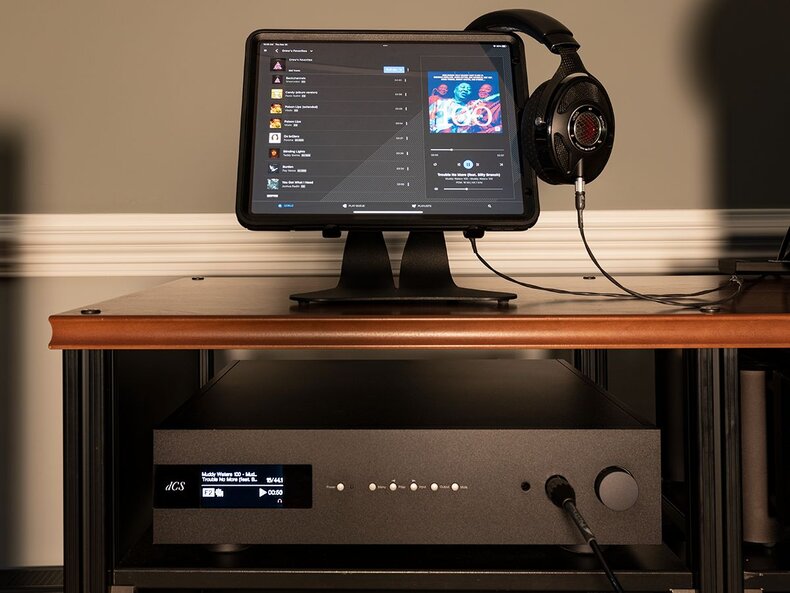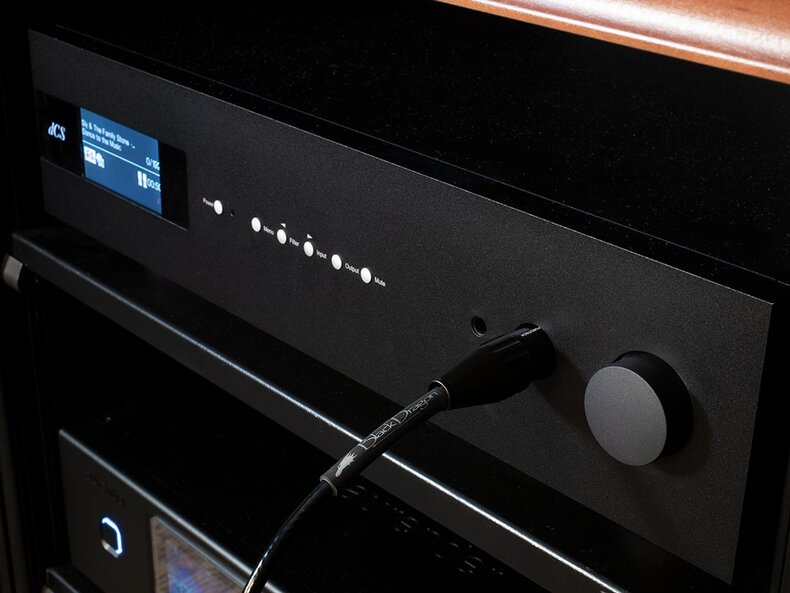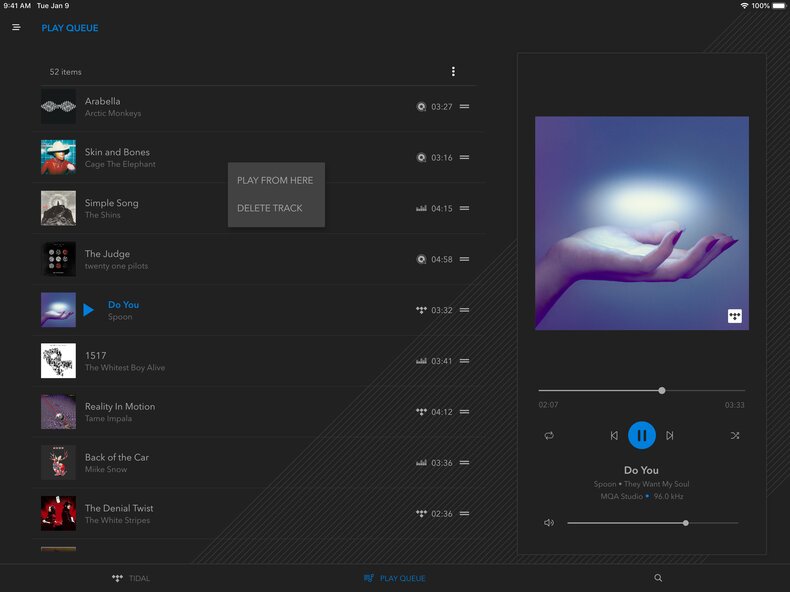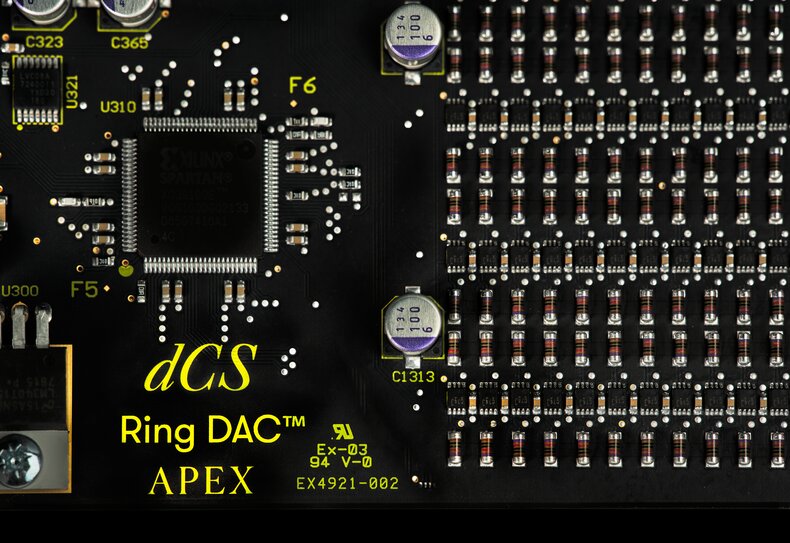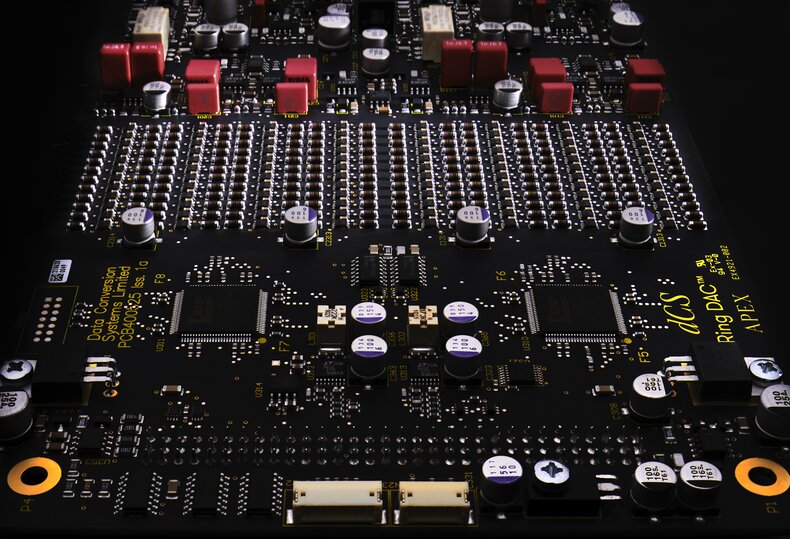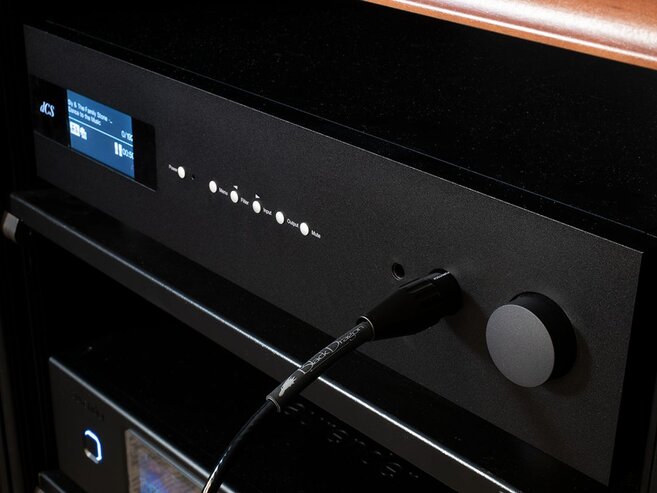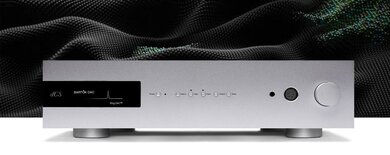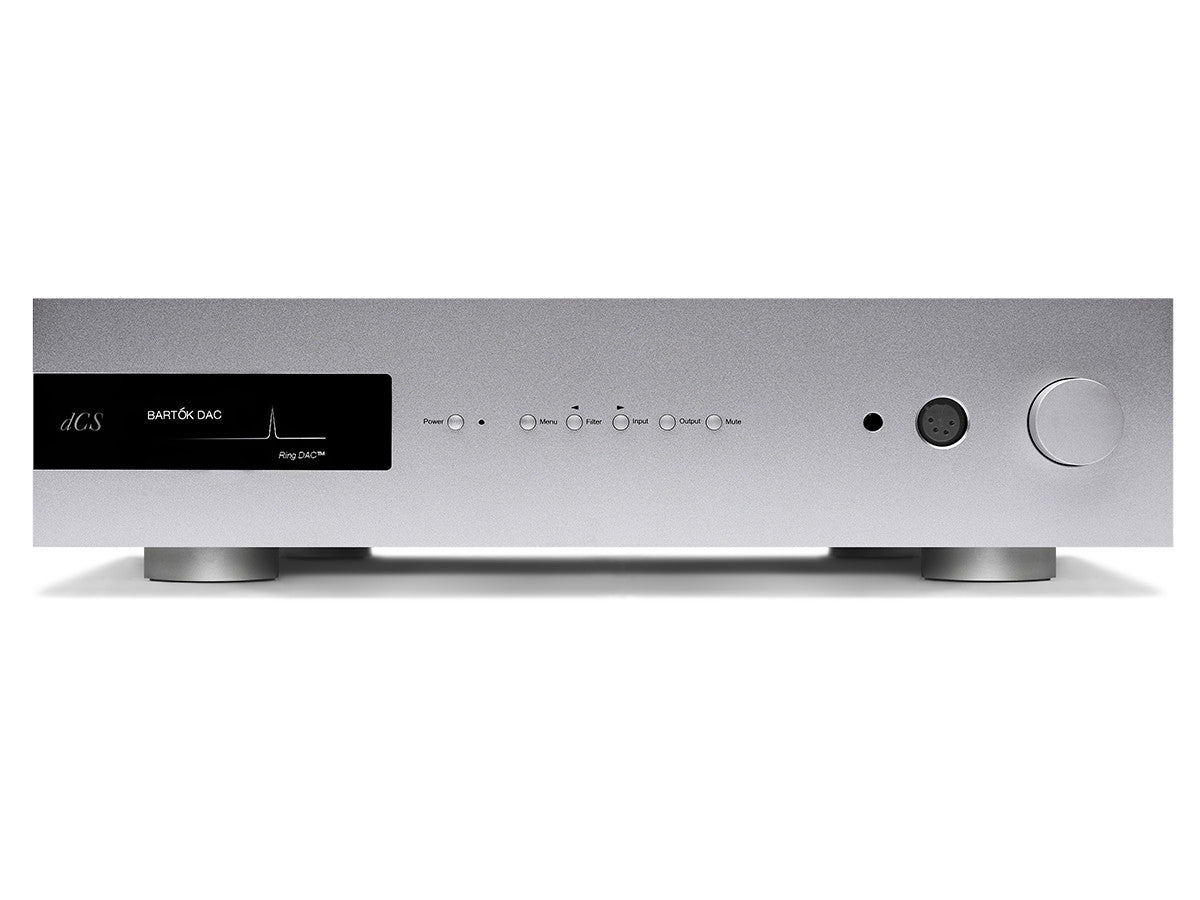
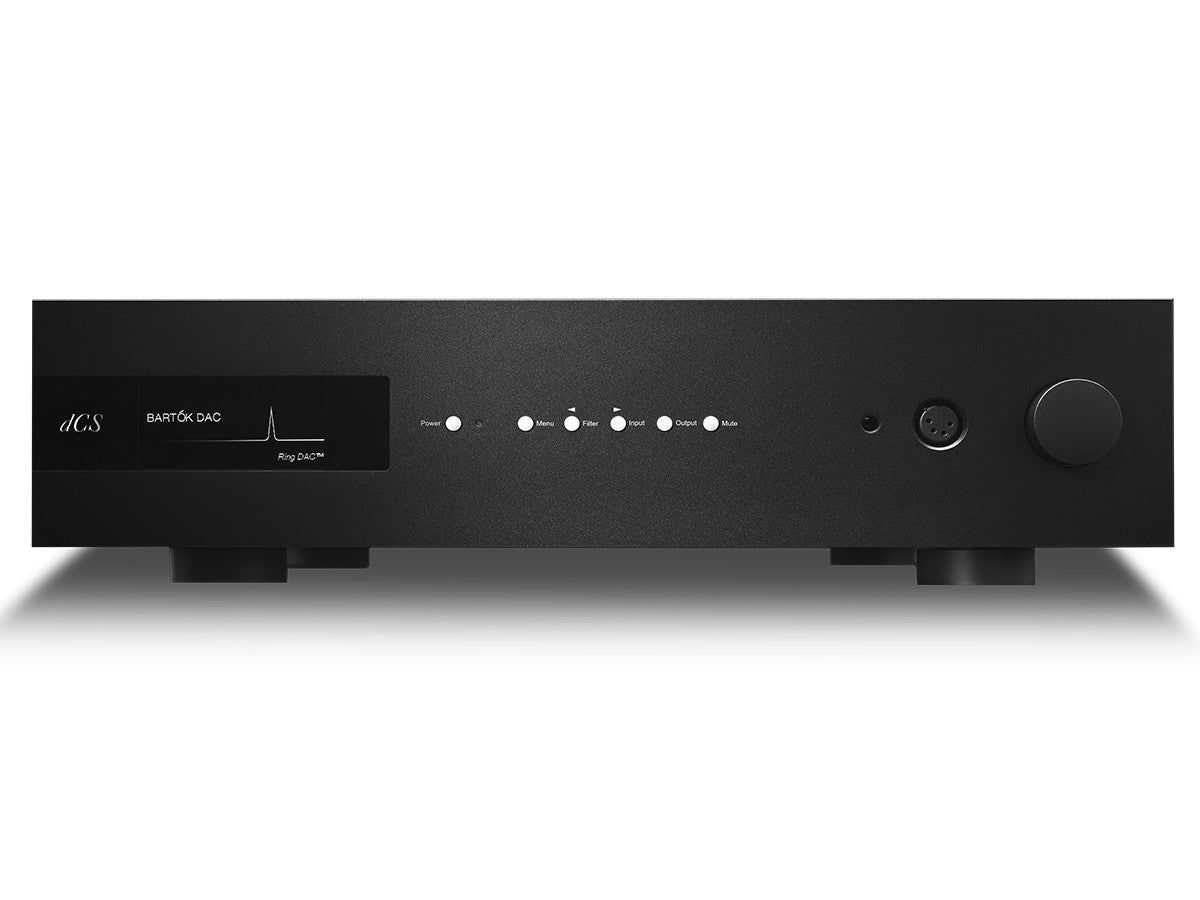
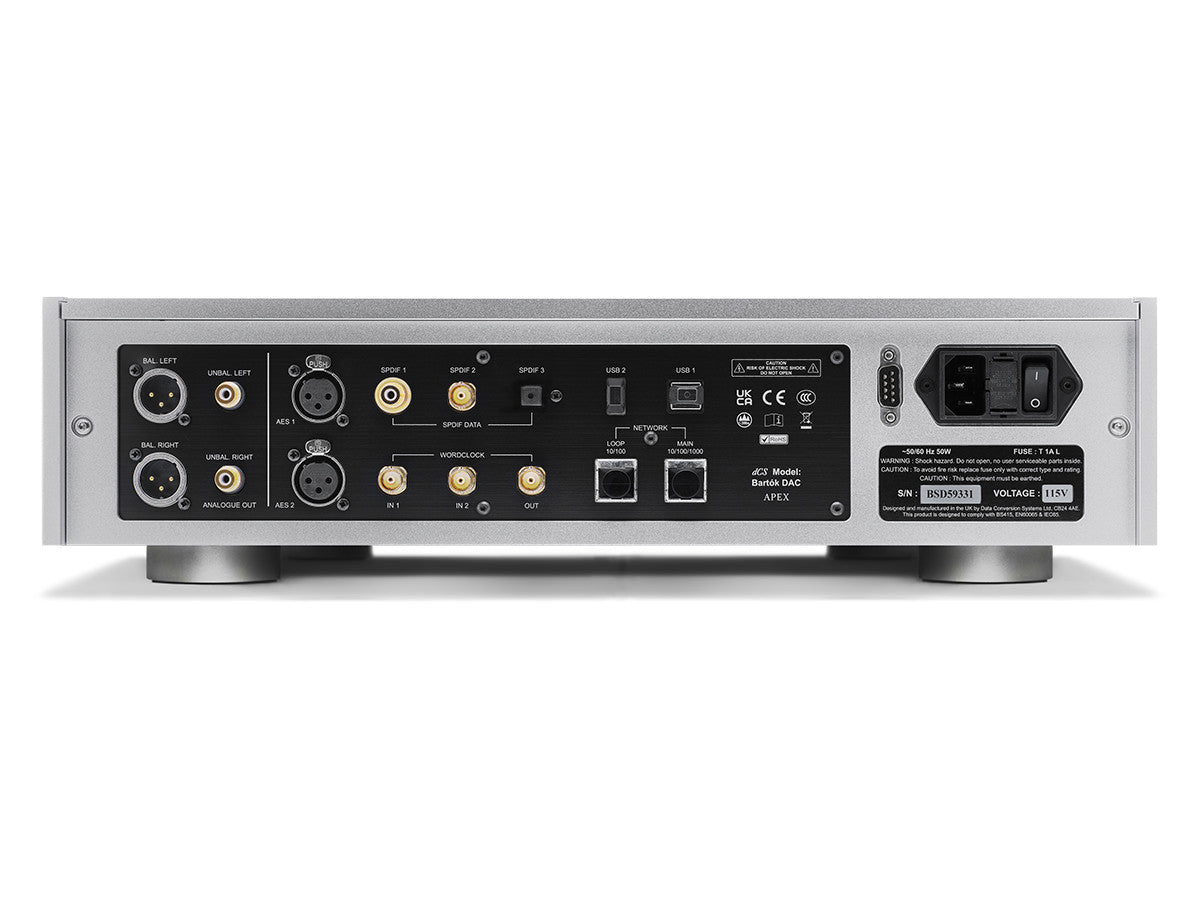
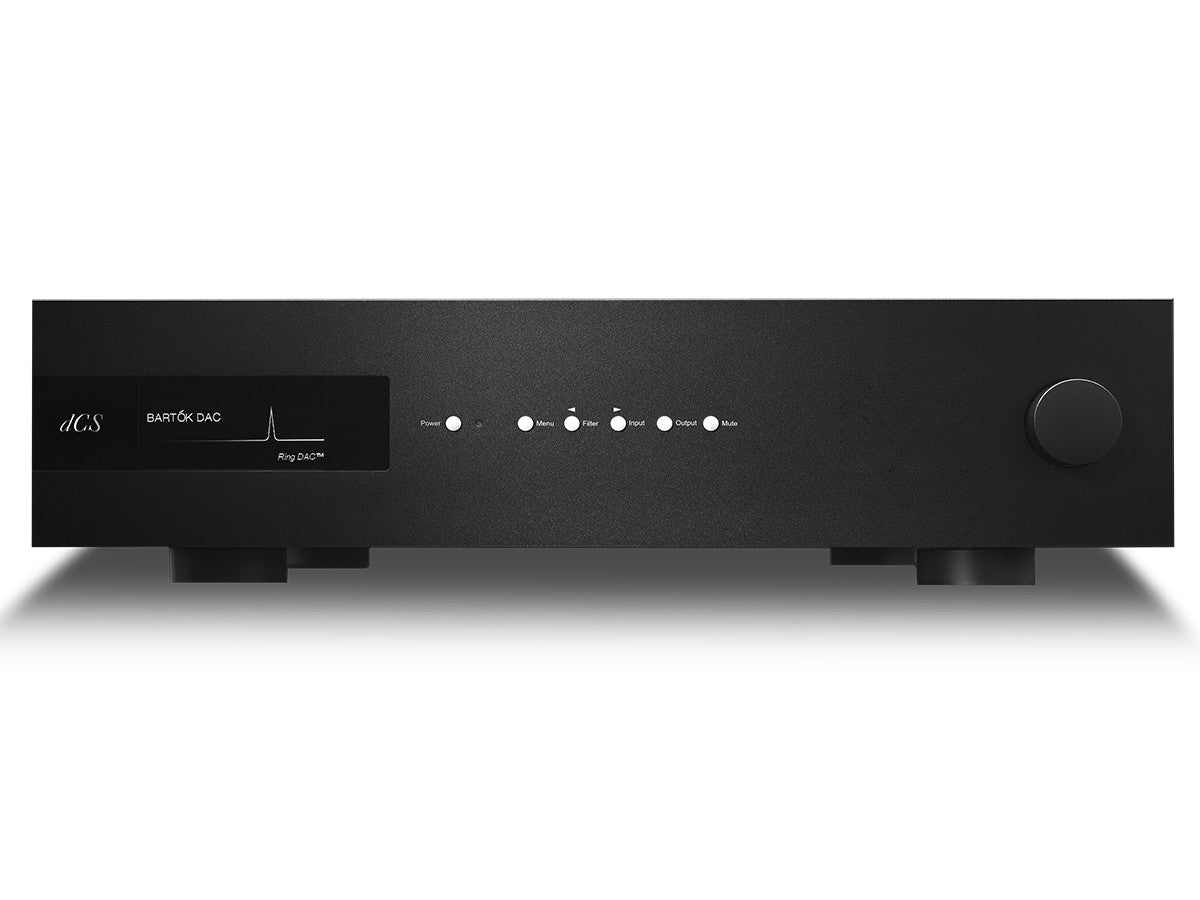
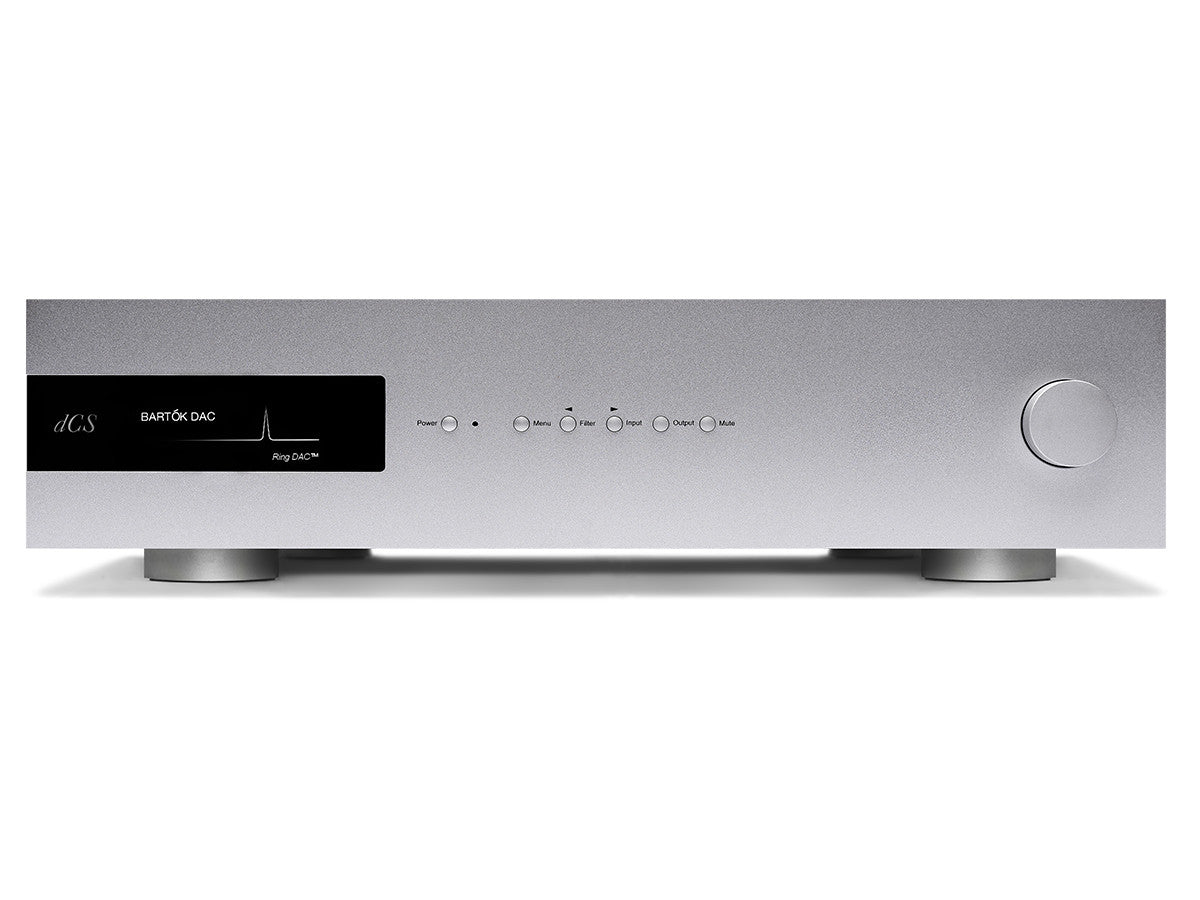
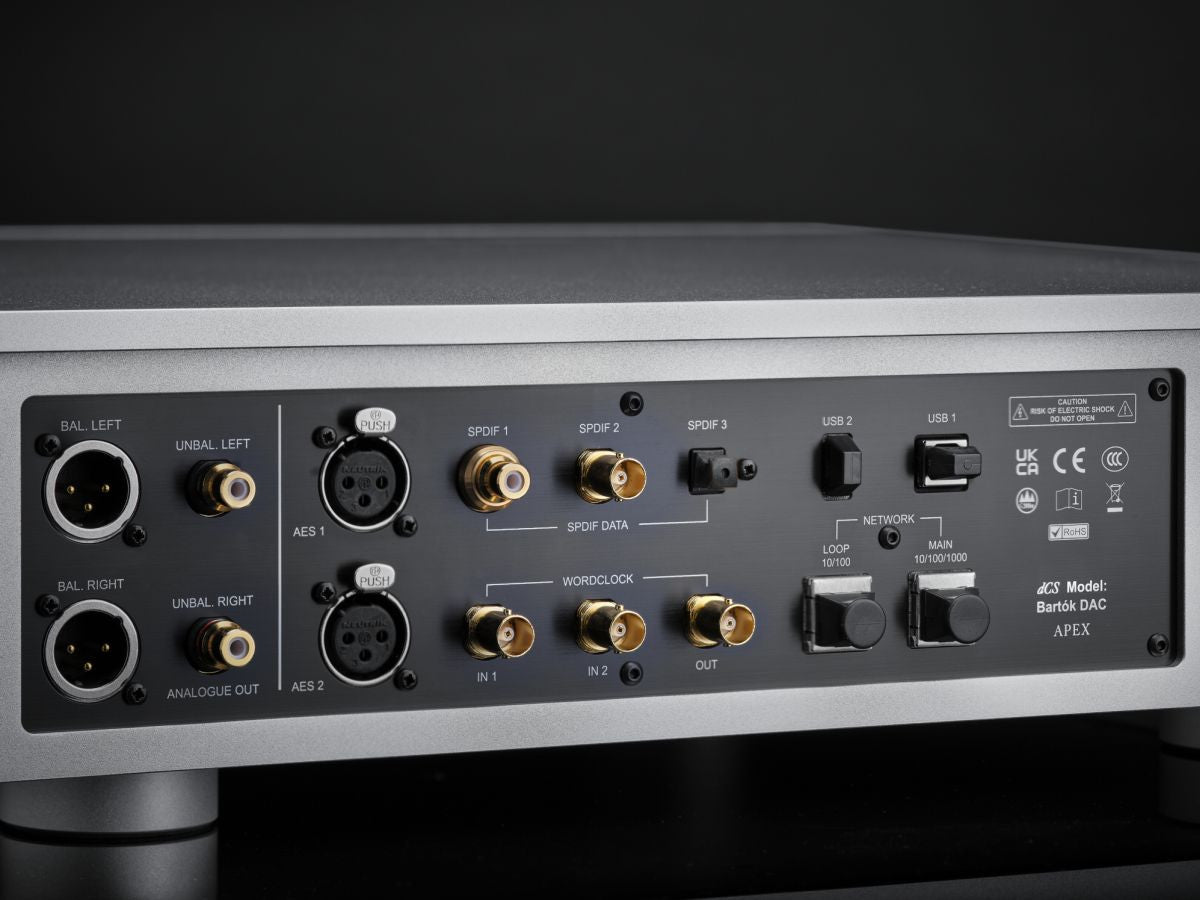
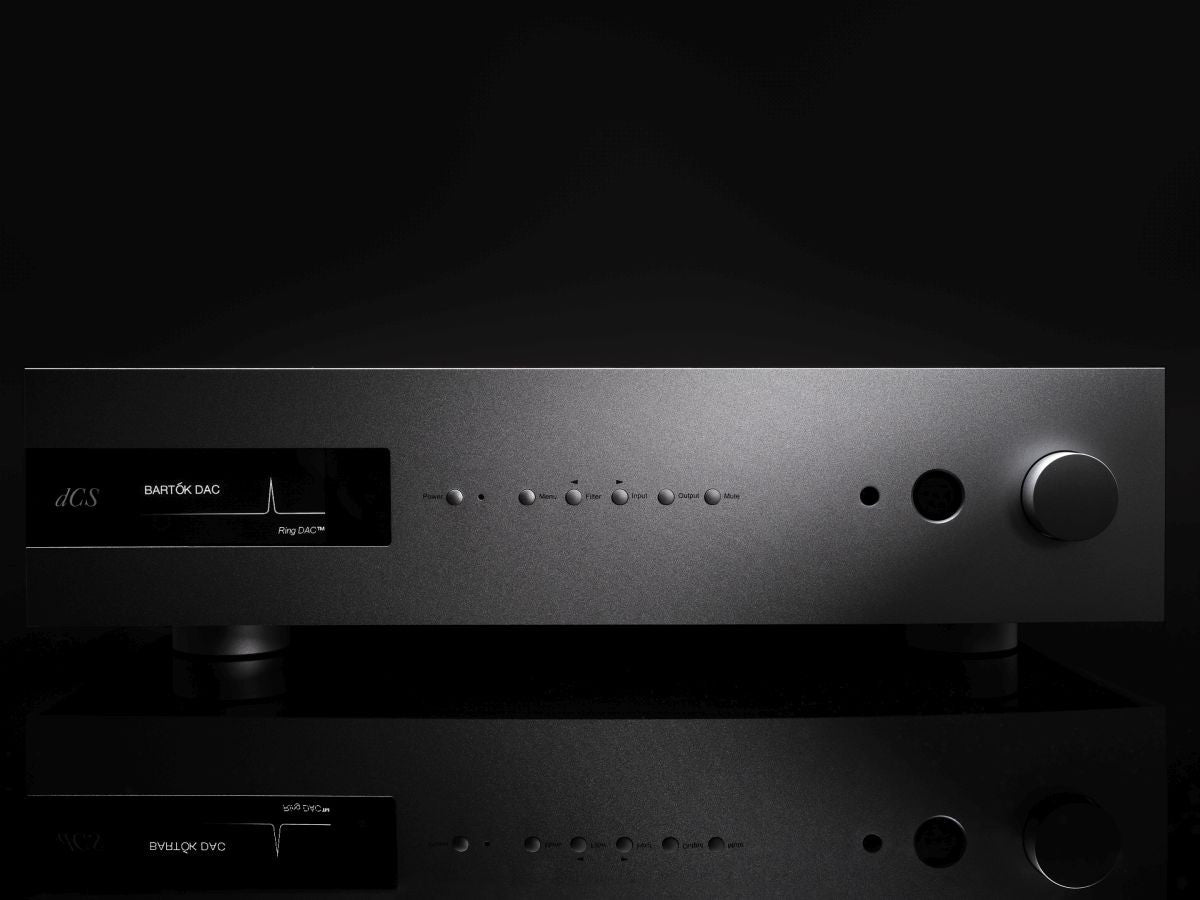
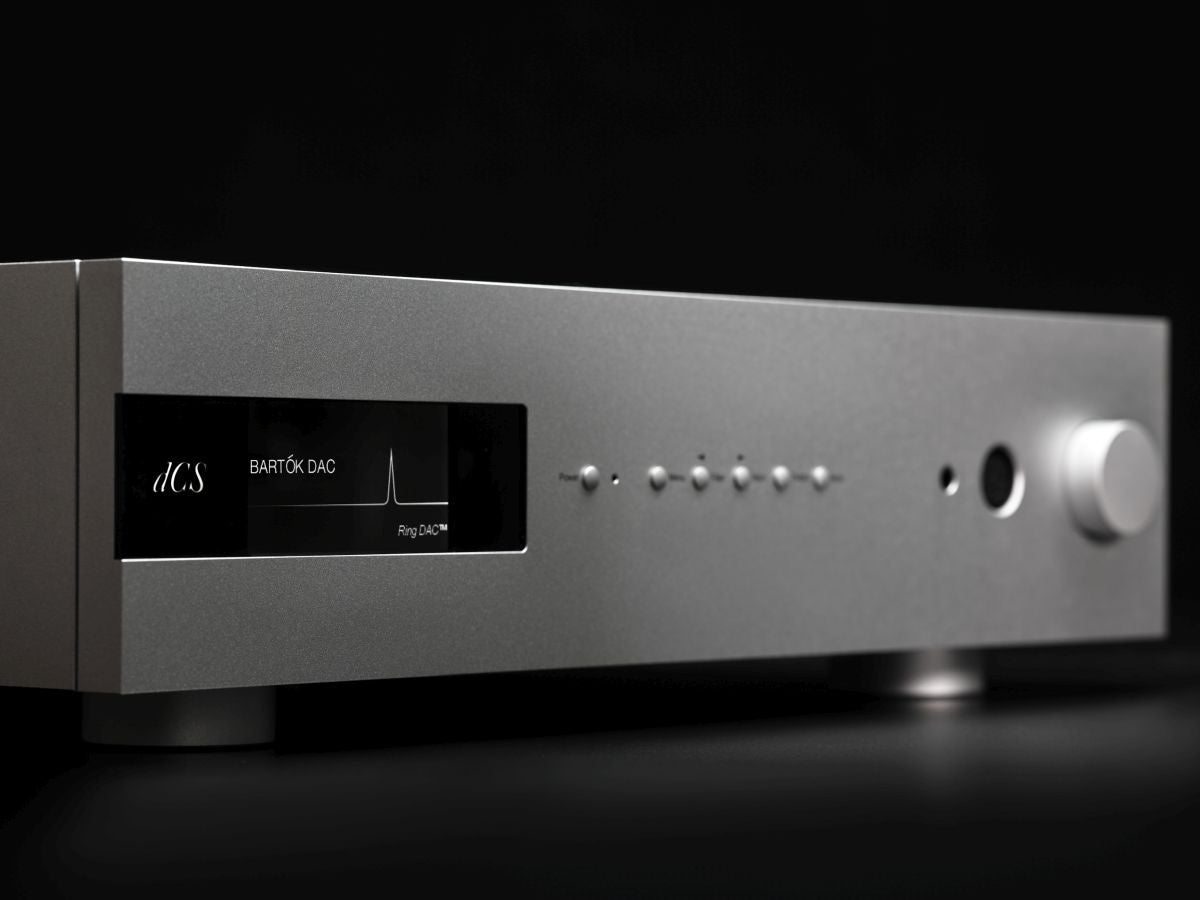
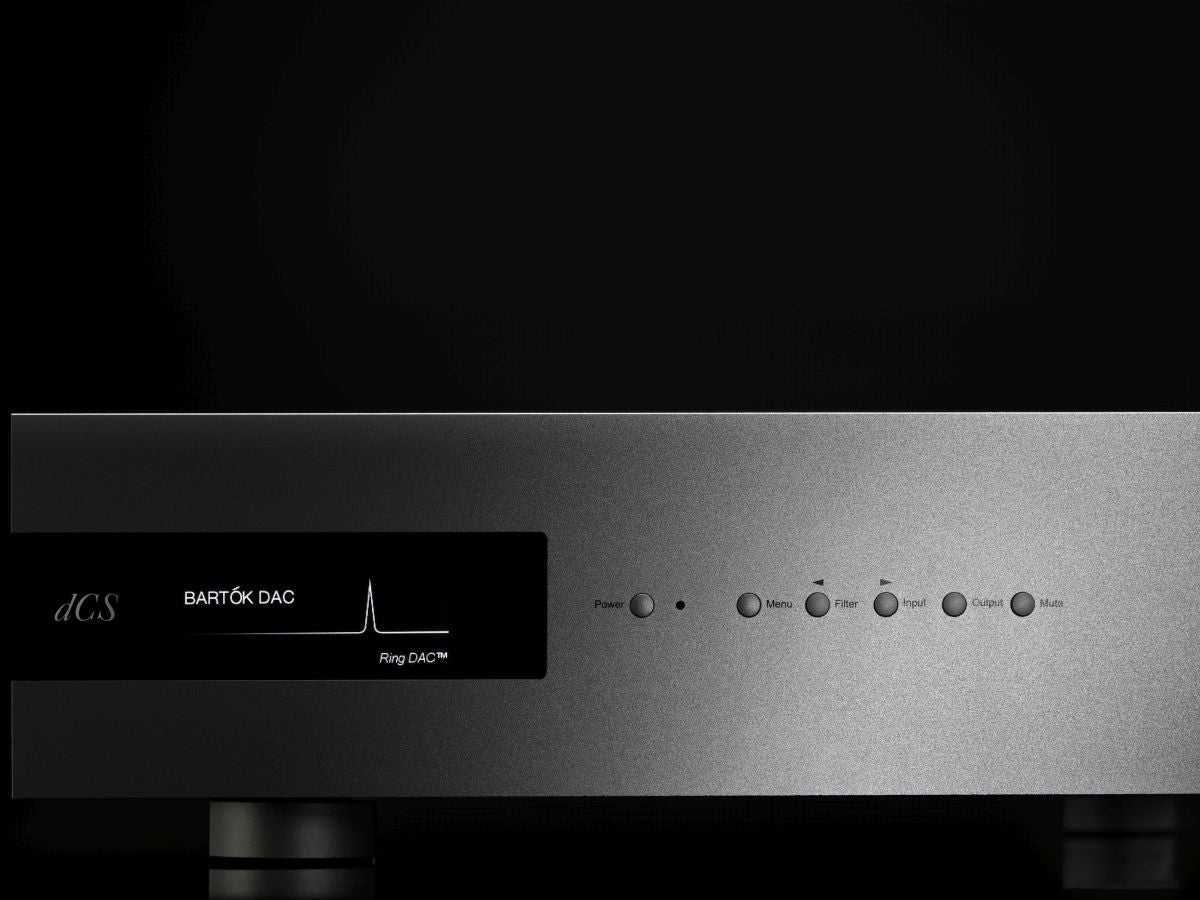
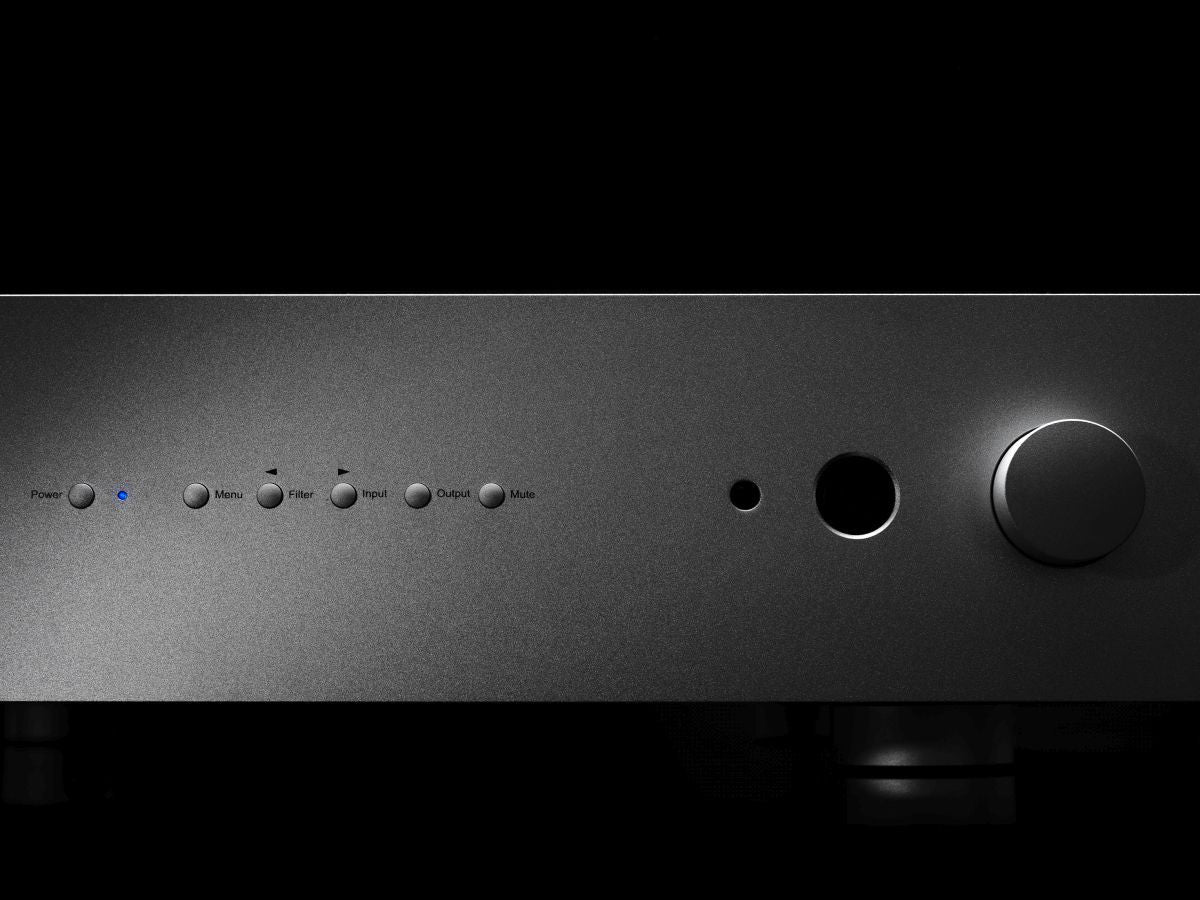
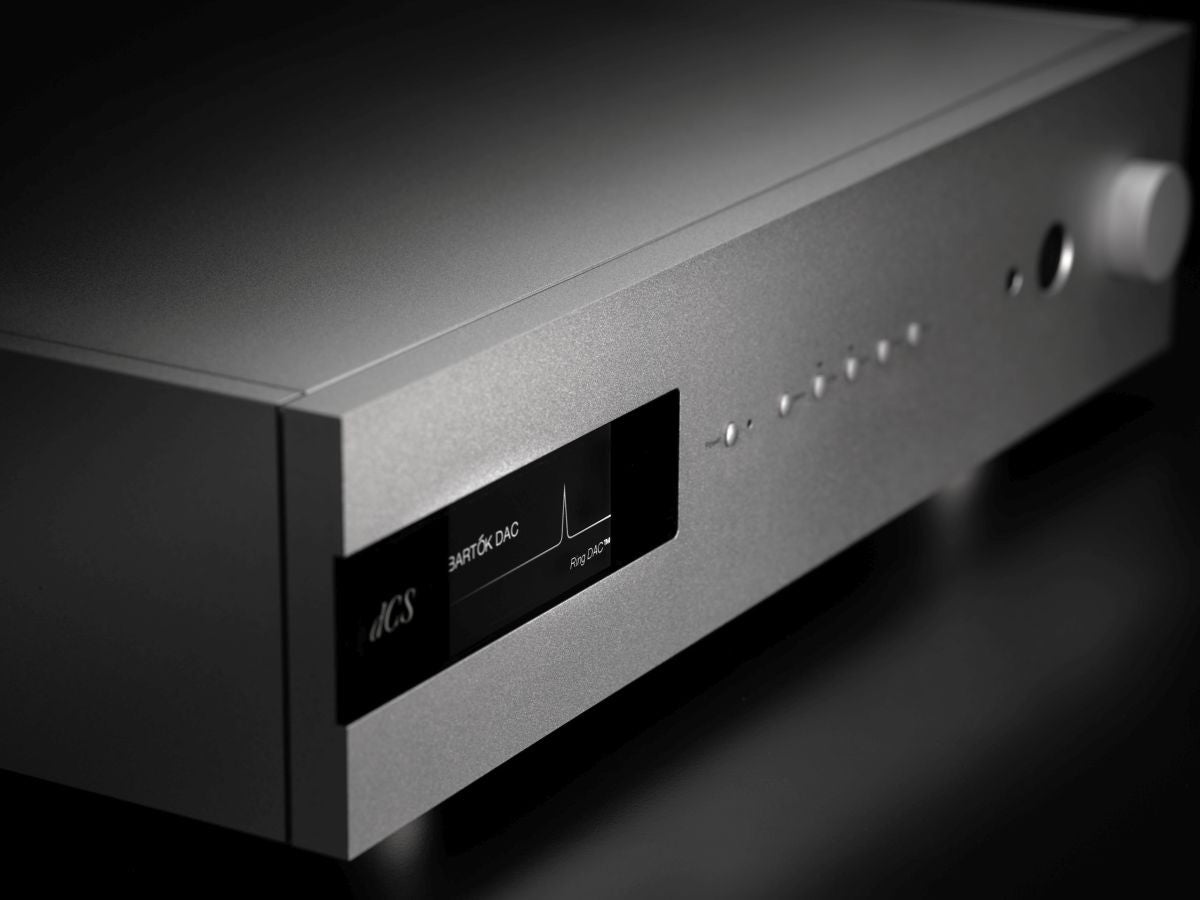
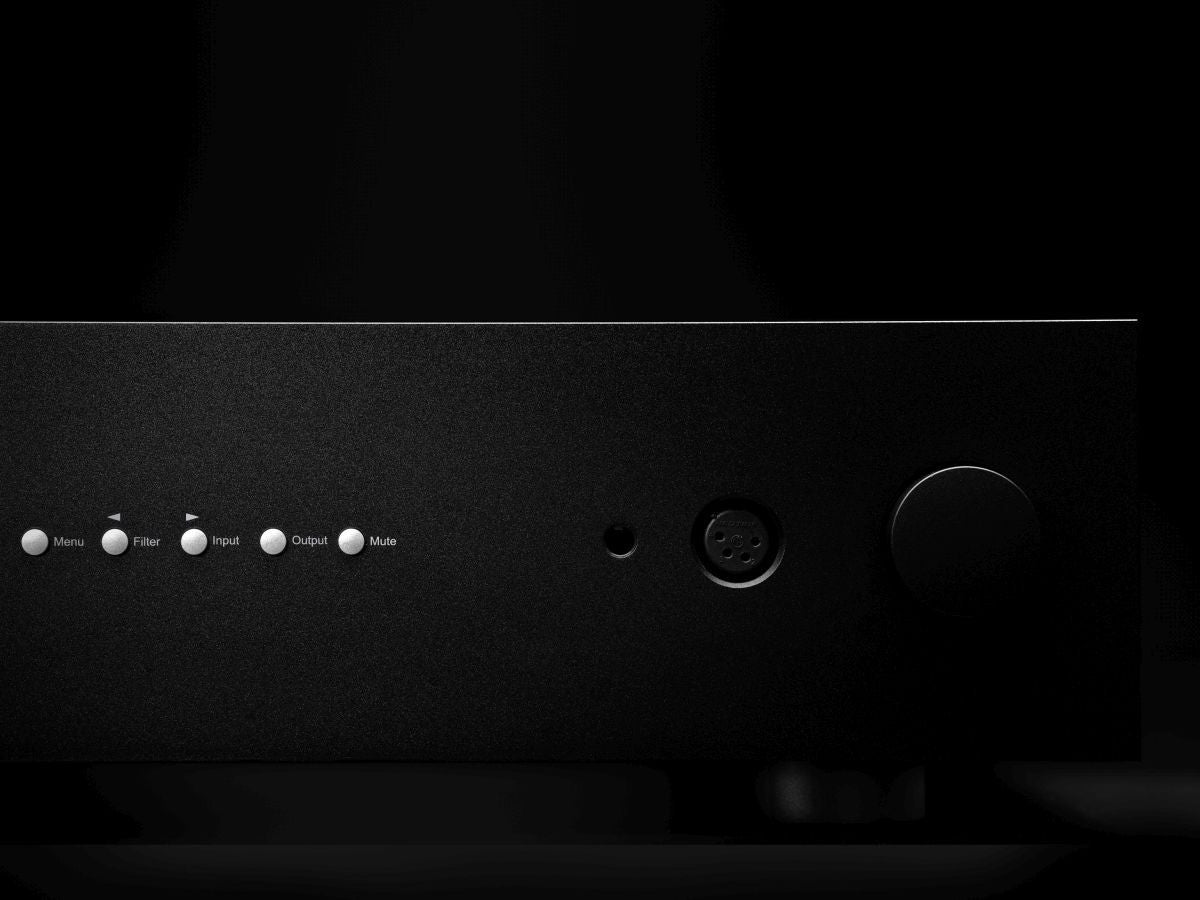
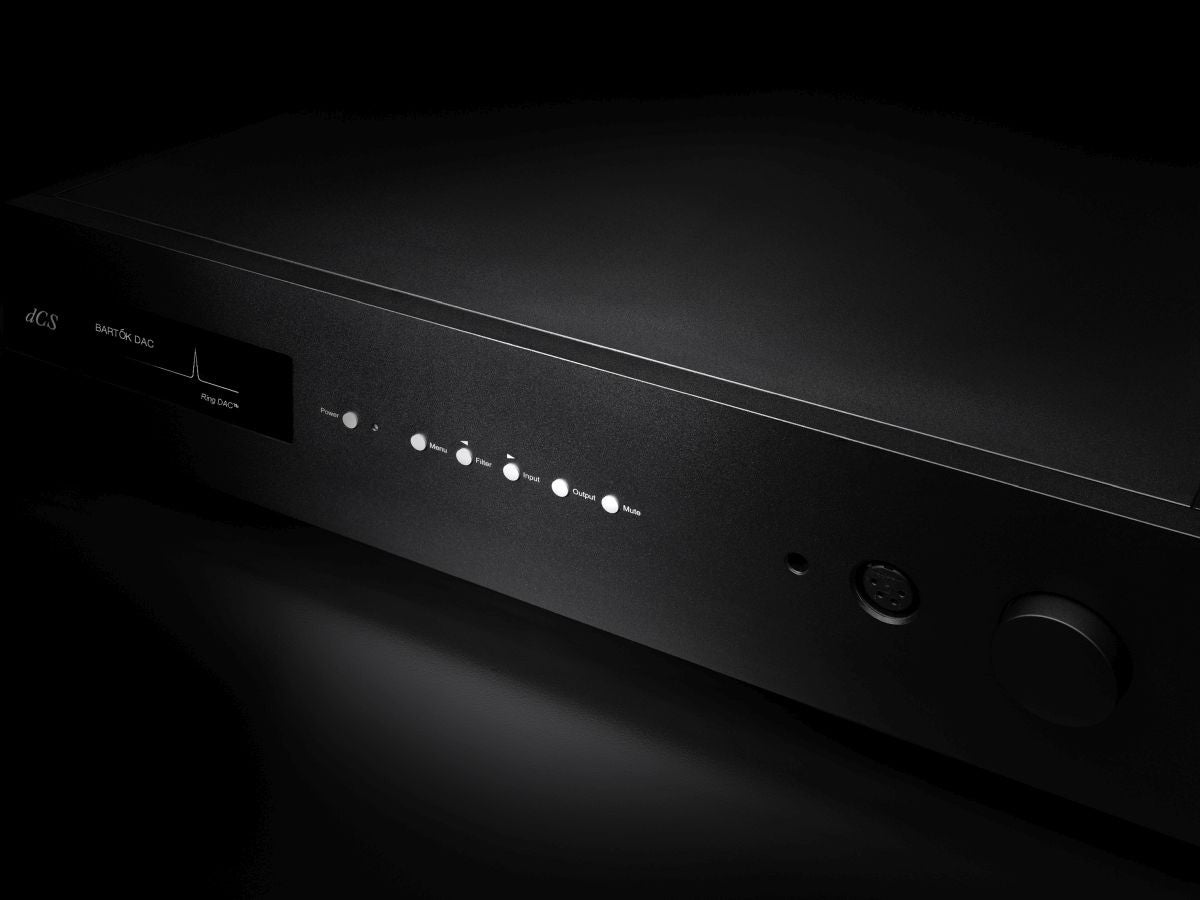
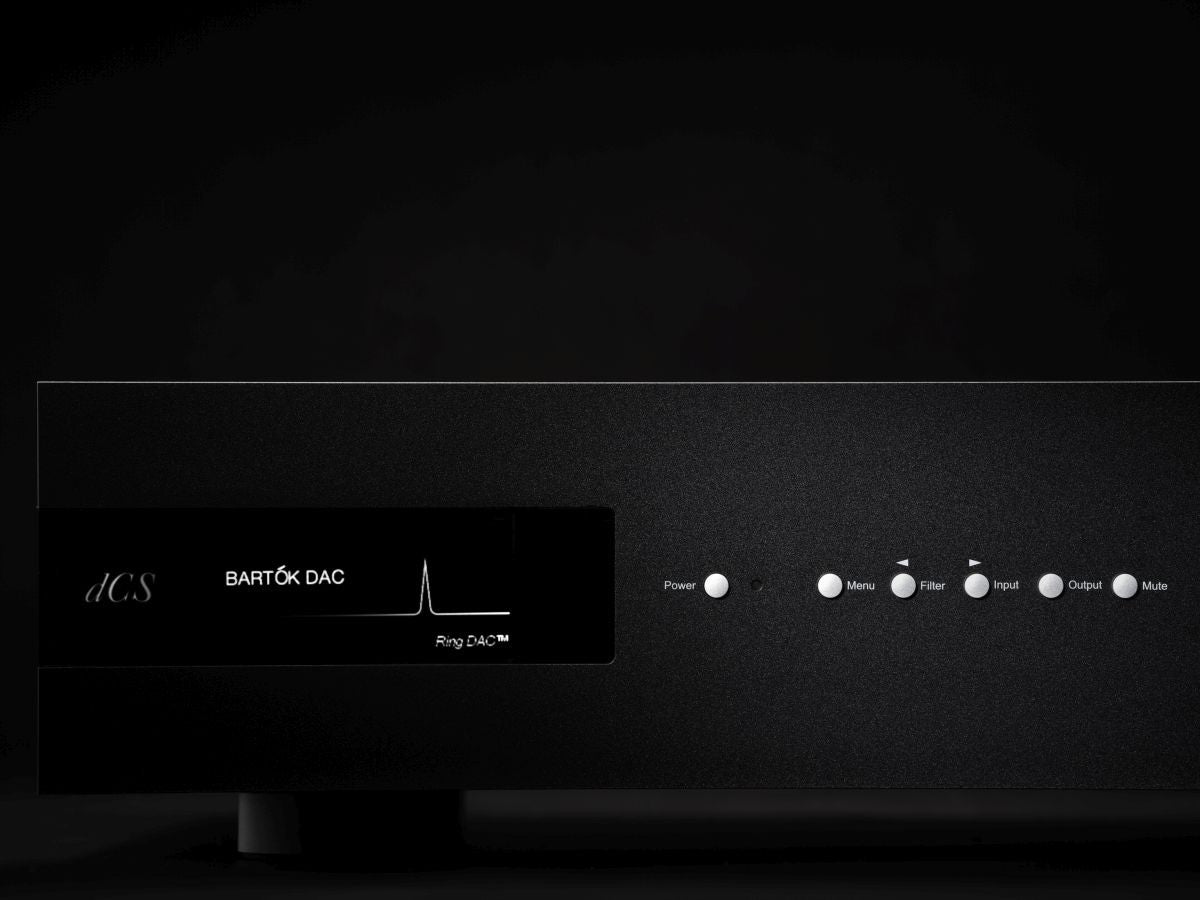
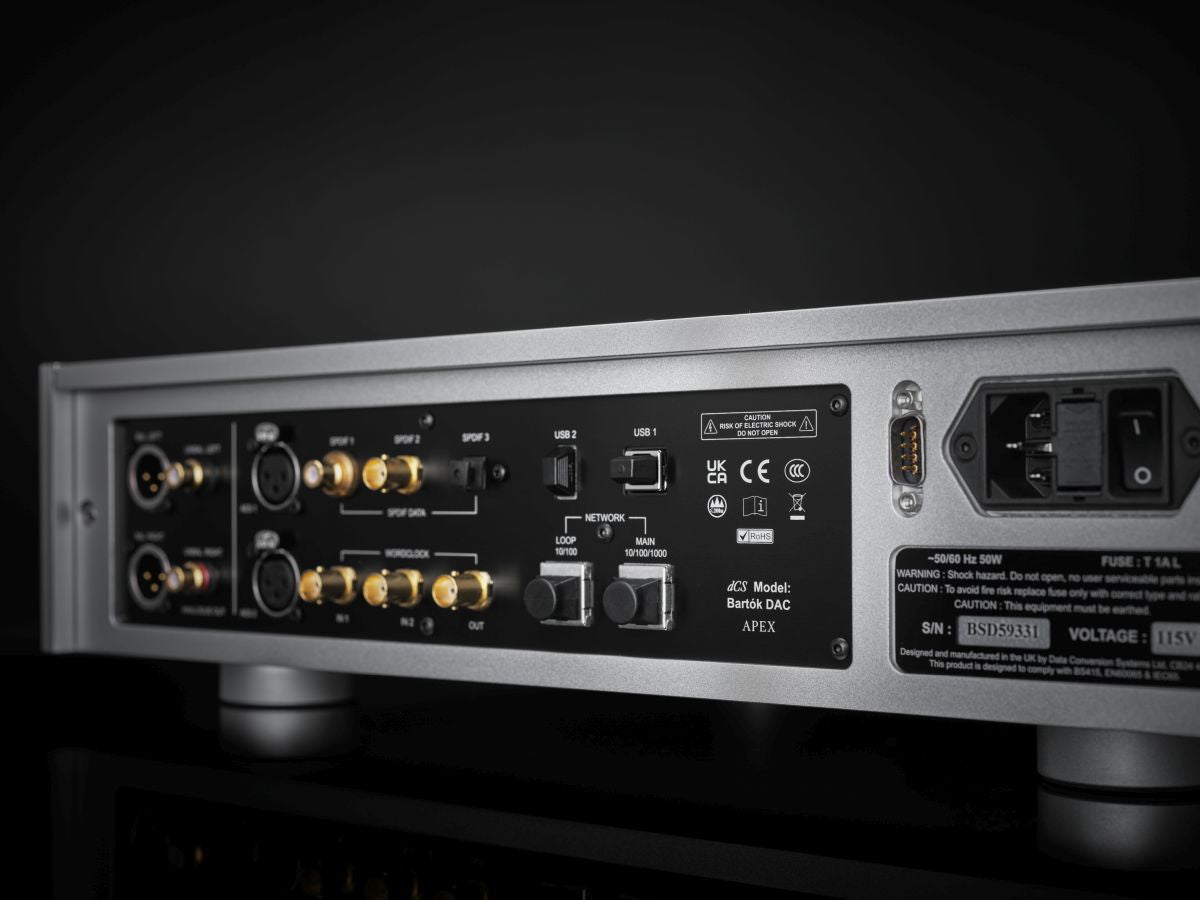
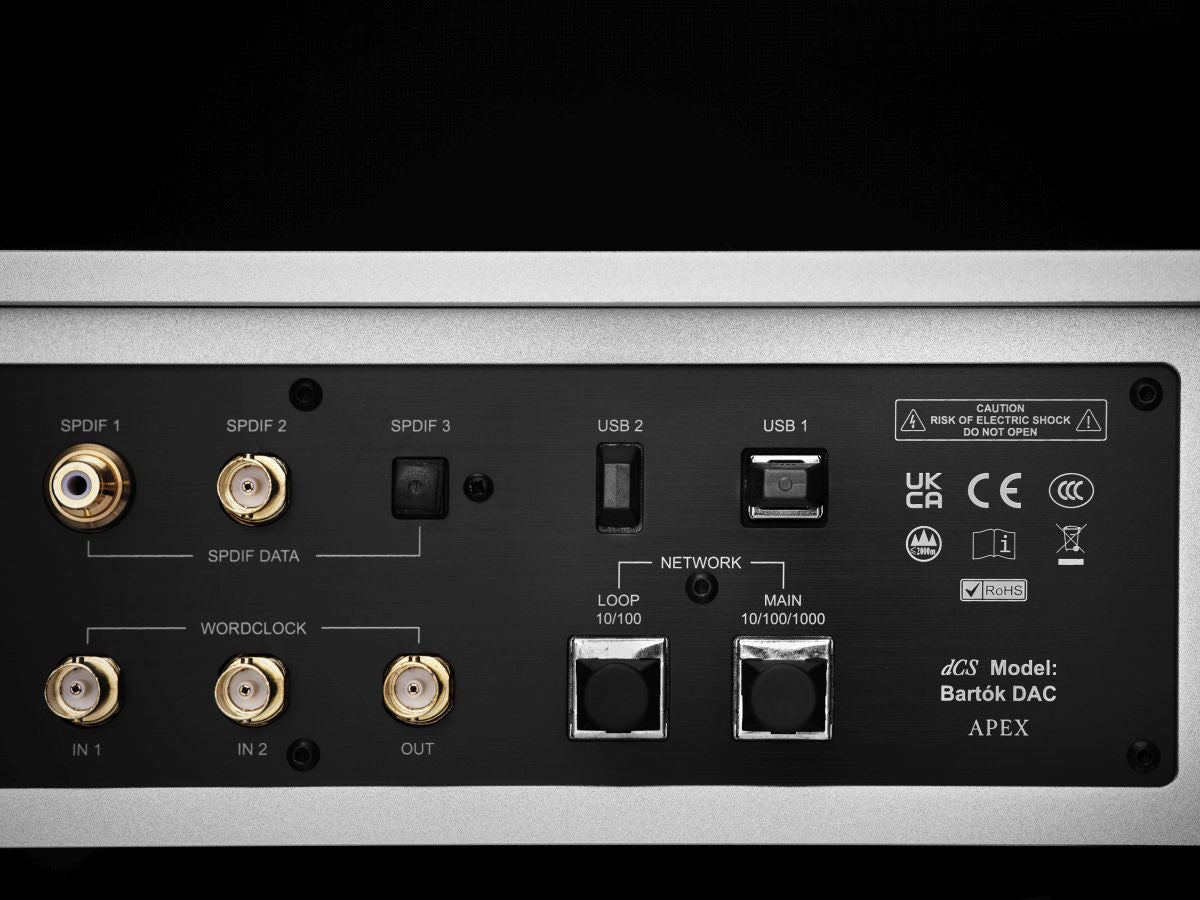
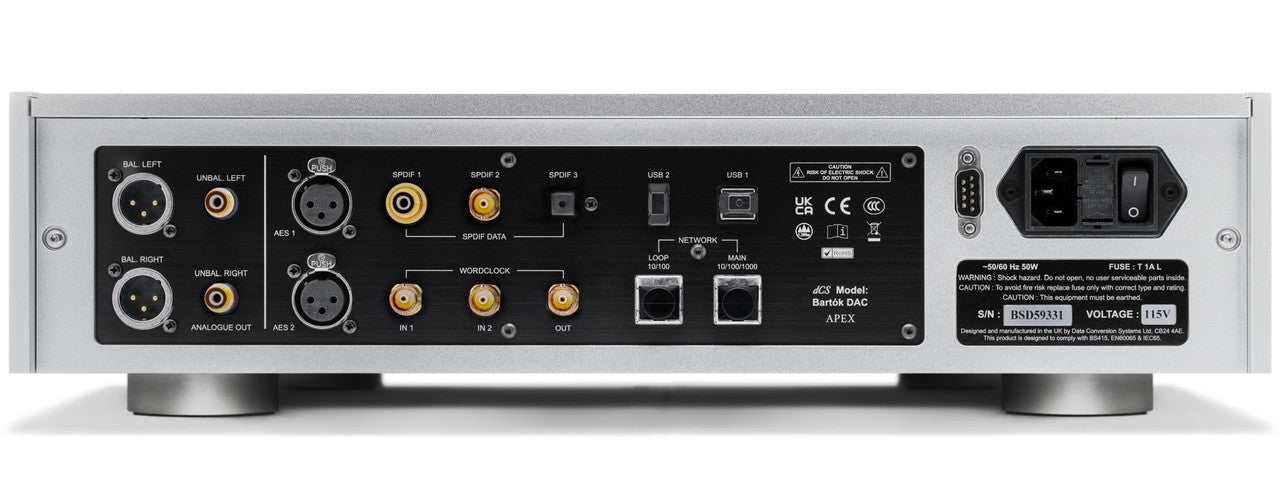
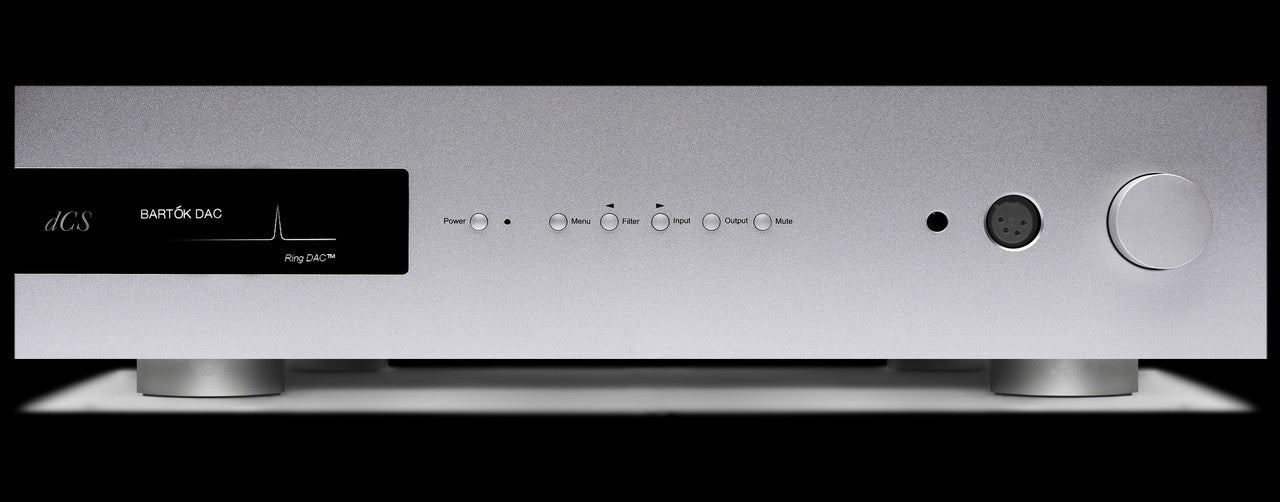
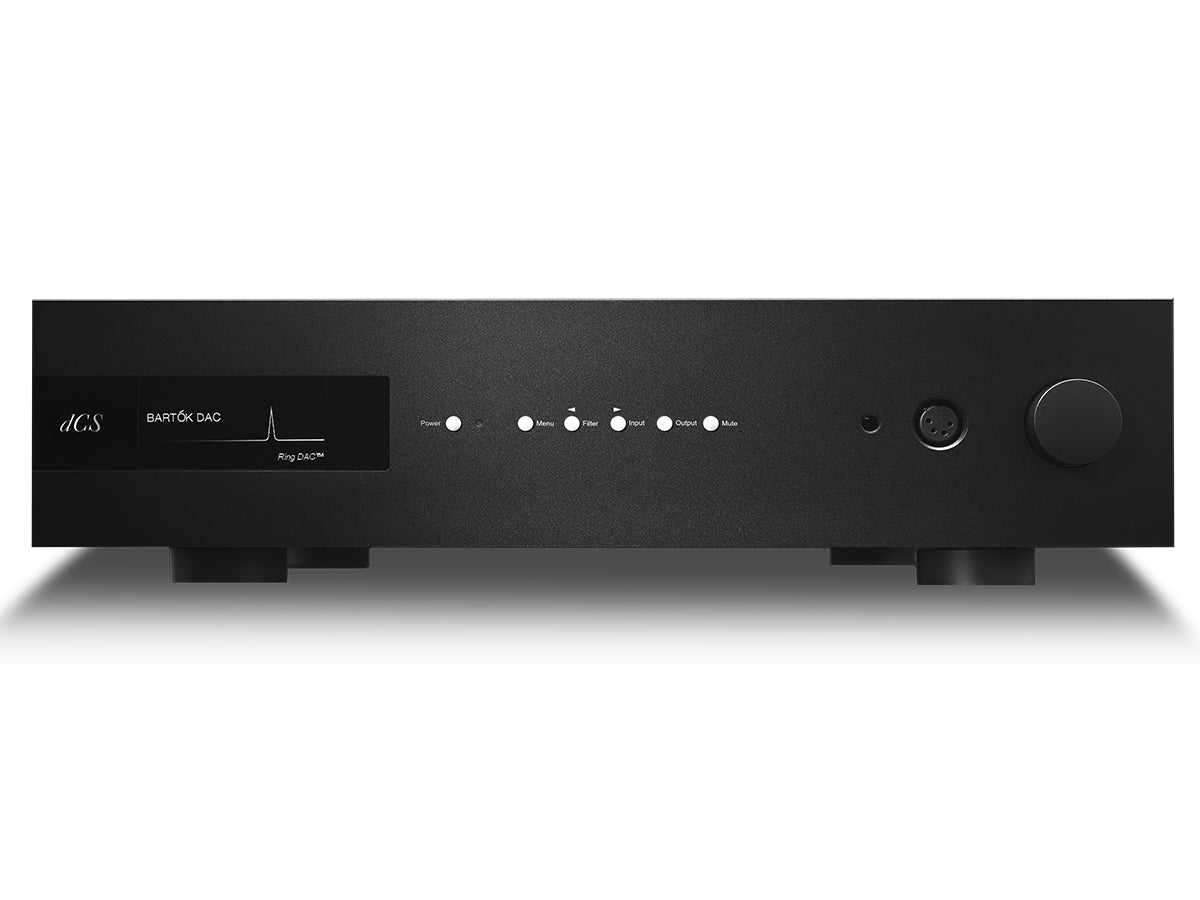
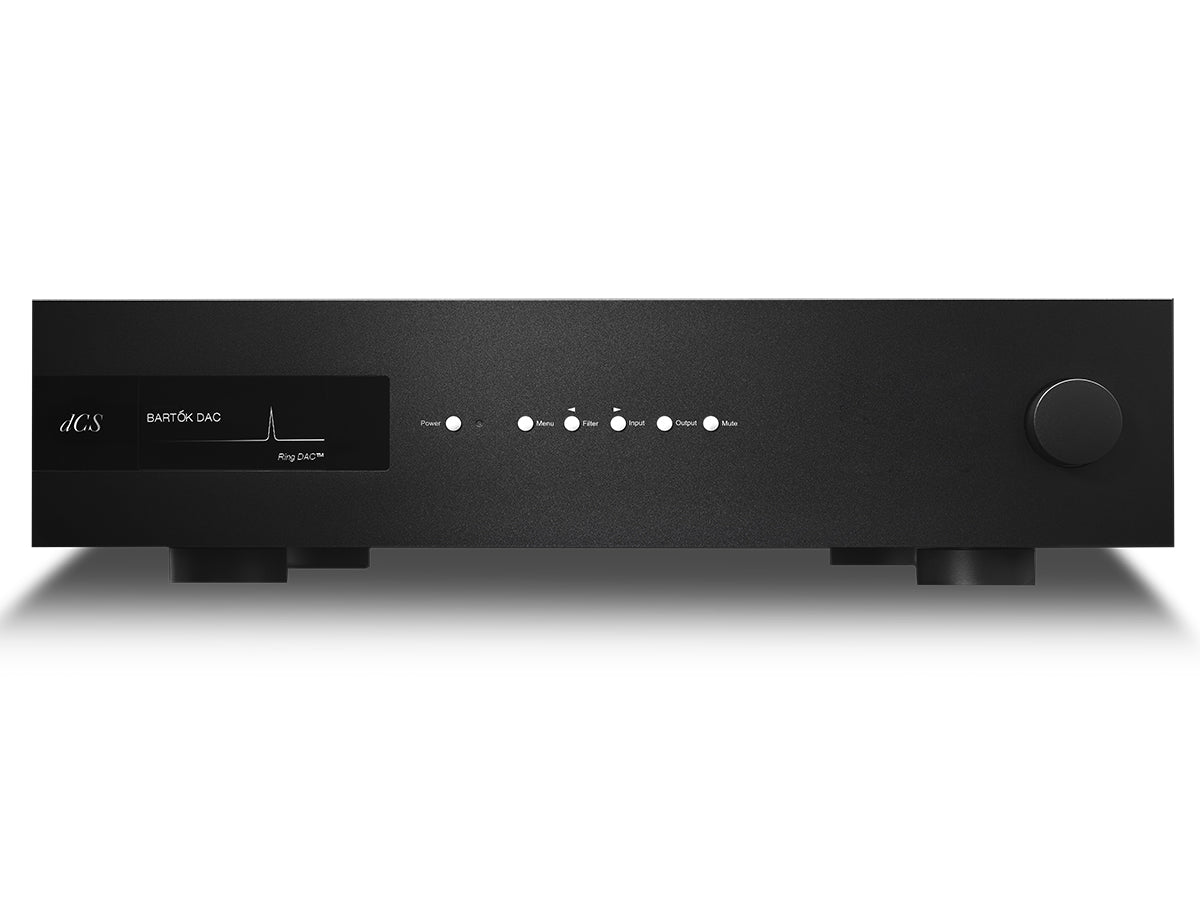
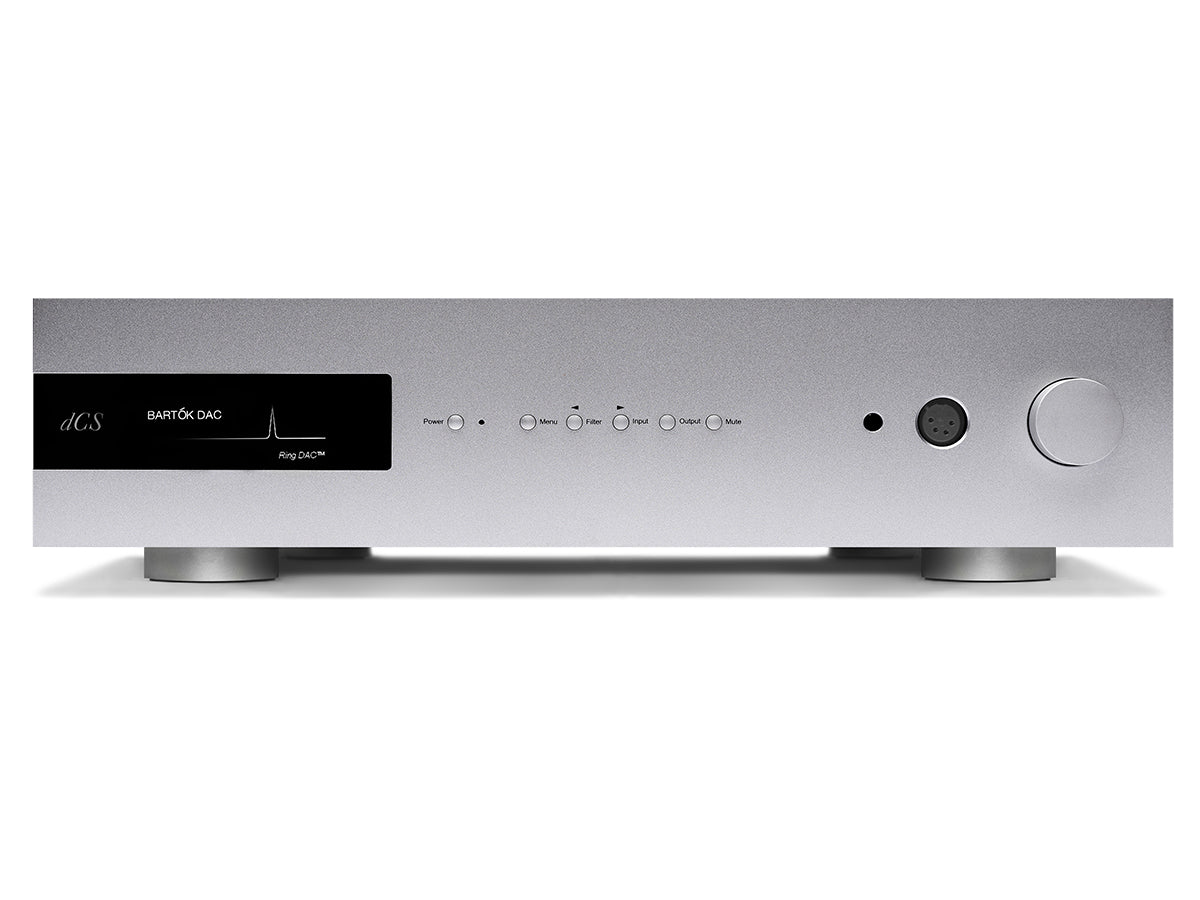
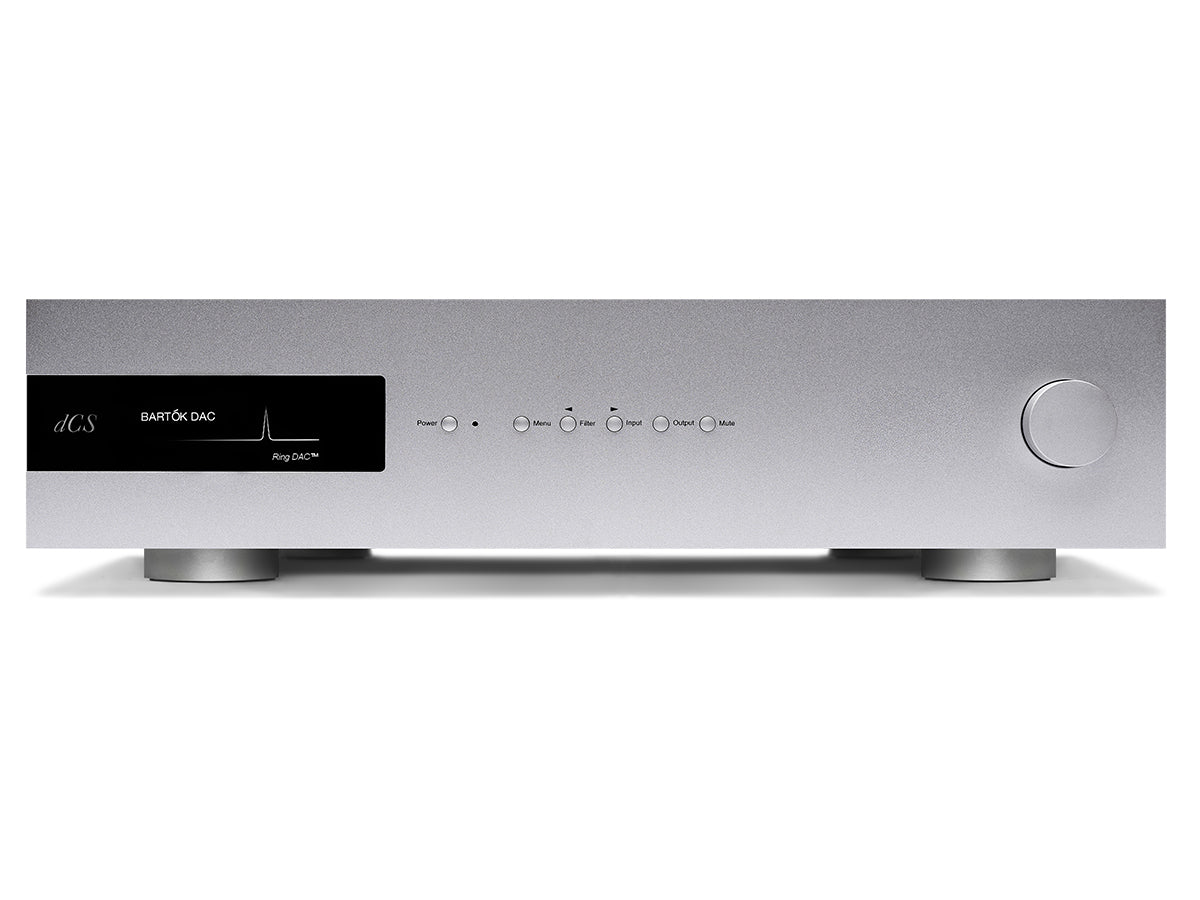




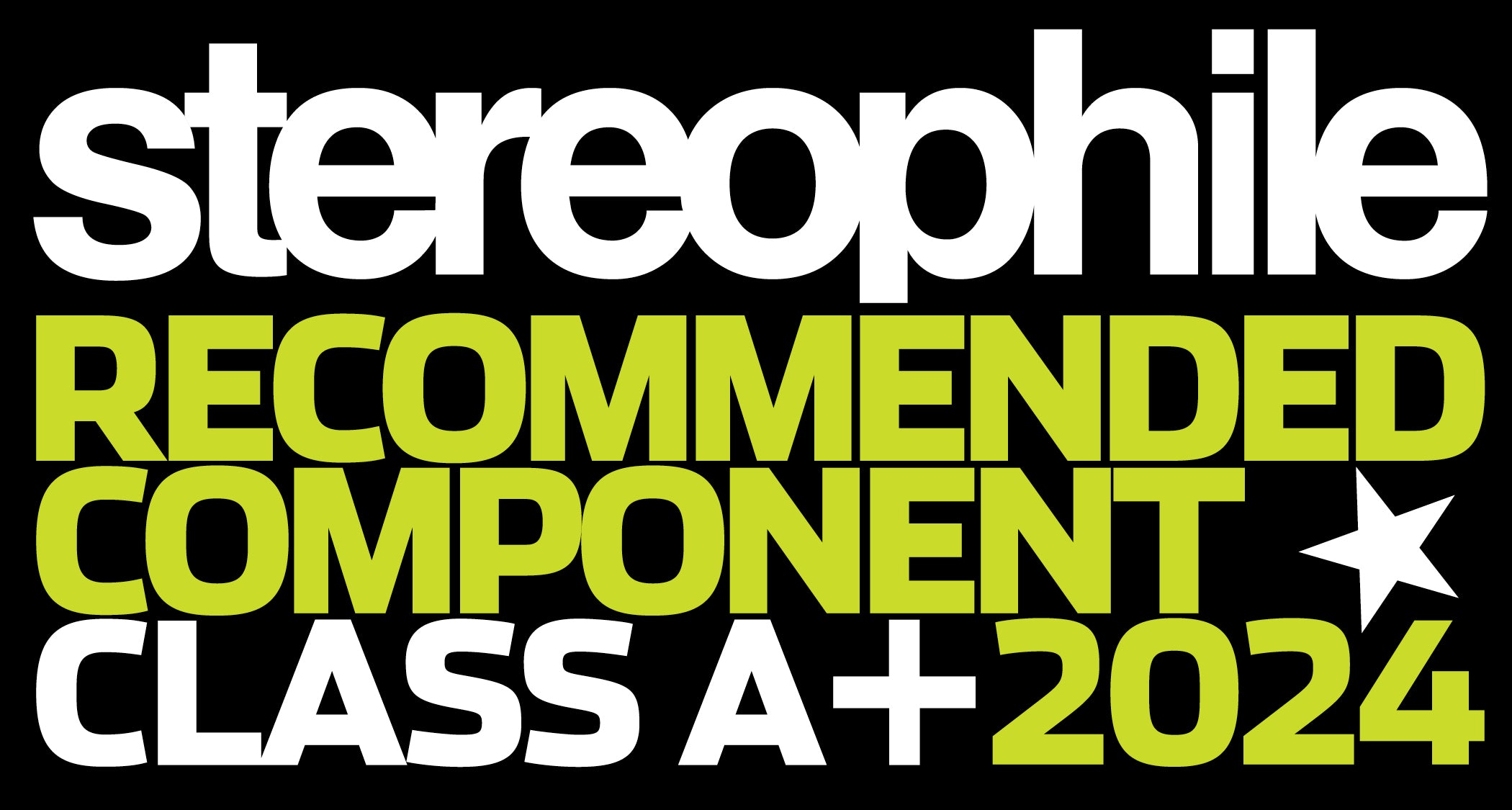
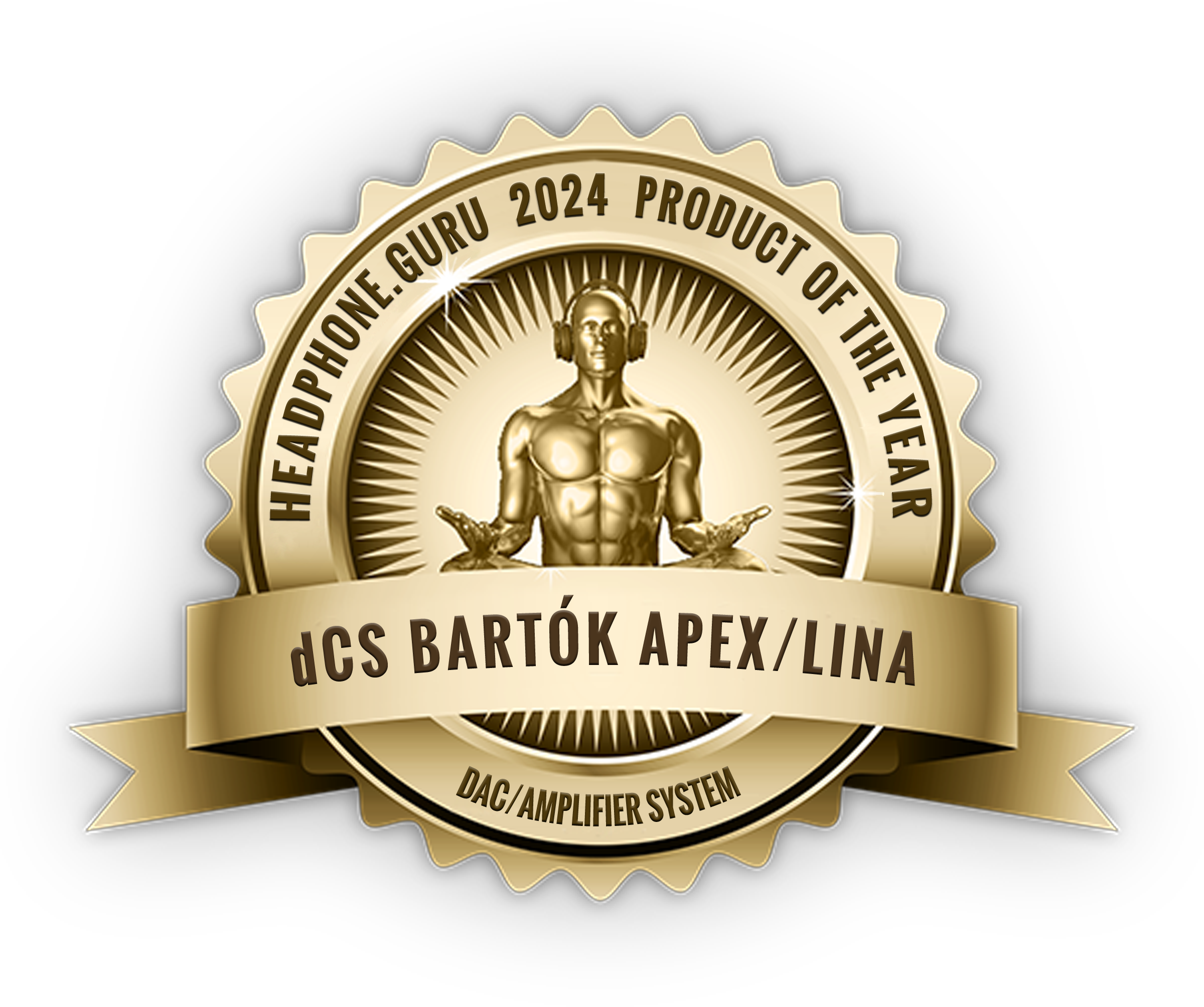

dCS
Bartok APEX DAC Headphone Amplifier
$22,000.00 USD
Features
dCS Ring DAC™ fitted, as used in the dCS Vivaldi digital playback system
High-quality streaming from TIDAL, Qobuz, Deezer and internet radio via the dCS Mosaic Control app
Roon Ready, AirPlay, Spotify Connect and UPnP compatible
USB, AES, Dual AES and S/PDIF digital audio inputs
Headphone amplifier with balanced and unbalanced outputs, suitable for high and low impedance headphones
Accepts encrypted SACD data from dCS Transports via Dual AES inputs. Oversampling design with switchable DSD upsampling; user-selectable PCM and DSD filters
Multi-stage DXD oversampling design with switchable DSD upsampling; user-selectable PCM and DSD filters
Auto clocking system improves ease of use and minimises jitter
Multi-stage power regulation and twin mains transformers to isolate the DAC section from the headphone amplifier
Firmware-upgradeable for future functionality and performance upgrades
Video
What's in the Box?
Warranty
Bartok APEX DAC Headphone Amplifier
$22,000.00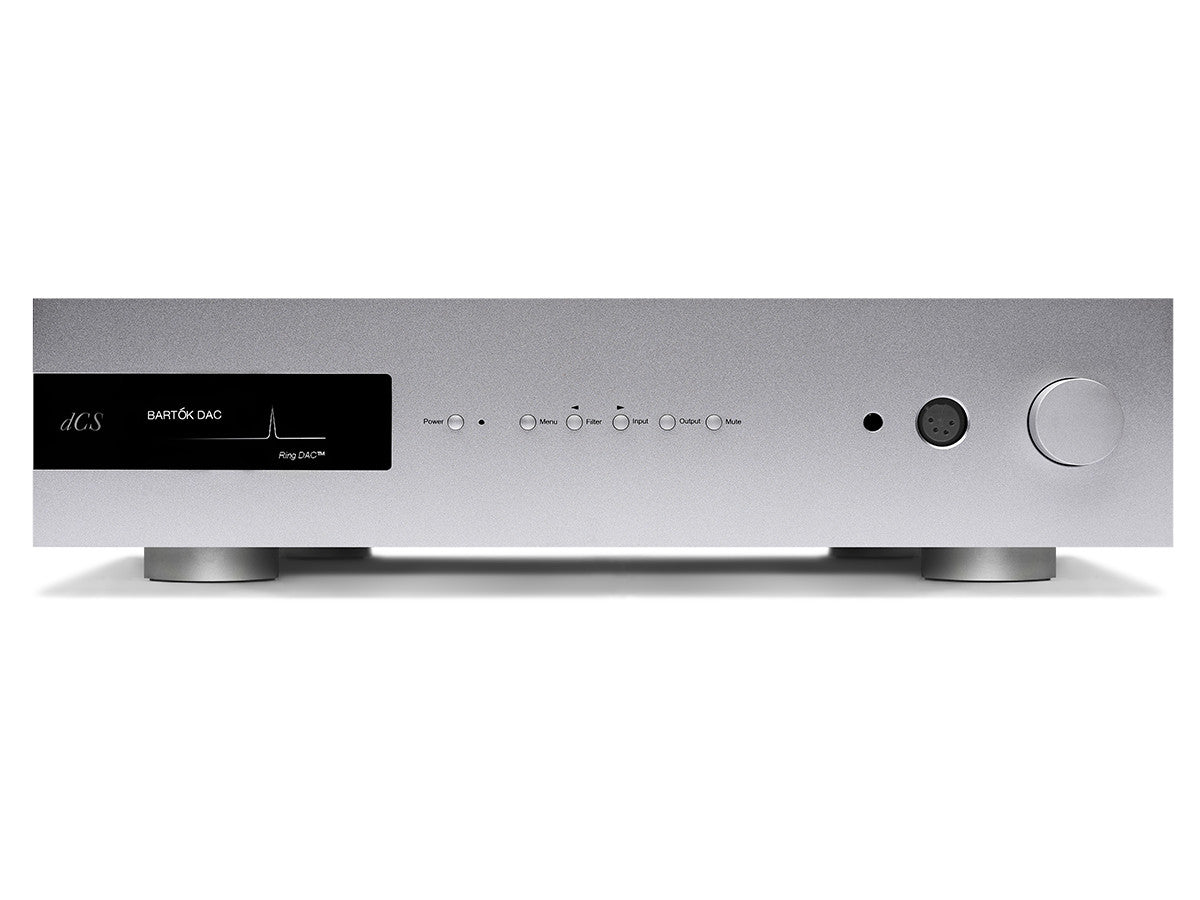
Designed for the discerning audiophile, the Bartók APEX DAC Headphone Amplifier combines the functionality of a music streamer, upsampler, preamp, and headphone amp in one state-of-the-art unit. Equipped with dCS' next-generation APEX Ring DAC, the new Bartók APEX DAC delivers an even more transparent and immersive listening experience than the original Bartók. Enjoy powerful, dynamic, and detailed sound with new levels of resolution and refinement. With flexible and upgradeable software and hardware, the Bartók APEX can grow and evolve, providing a state-of-the-art listening experience for years to come. Designed and built by hand at dCS headquarters in Cambridgeshire, England, the Barók APEX boasts an elegant and timeless aesthetic that combines meticulous craftsmanship and obsessive attention to detail. Available in silver or black, the Bartók APEX showcases dCS' uncompromising approach to design.
Dragon Cable Recommendation: We recommend pairing the dCS Bartók APEX DAC Headphone Amplifier with the Silver Dragon Network Cable to provide a stable internet connection. The Silver Dragon Network Cable delivers high speed, low latency, and low jitter-perfect bit rate communication between audio components. For audio device interlinking, we recommend our Silver Dragon Interconnect Cable with XLR connectors. This will allow you to connect the Bartók APEX to other devices within your setup. With a braided geometry and amazing shielding, this interconnect is a remarkable solution where noise isolation is key.
Our Black Dragon AES Digital Cable with XLR connectors for all your high-end audio digital applications. Some uses are to connect a CD Transport or computer's Pro Audio Card like a Lynx to an outboard digital to analog converter. Lastly, we recommend powering the unit with the Black Dragon Power Cable. The Black Dragon Power Cable is the ultimate power cable designed to be dead quiet and reject all EMI and RFI interference. 4-11Awg Stranded high purity slow drawn Copper conductors are used per cable in a star Quad configuration. The cable has a single 100% coverage shield but can be doubled up for noisy environments plus it is relatively flexible.
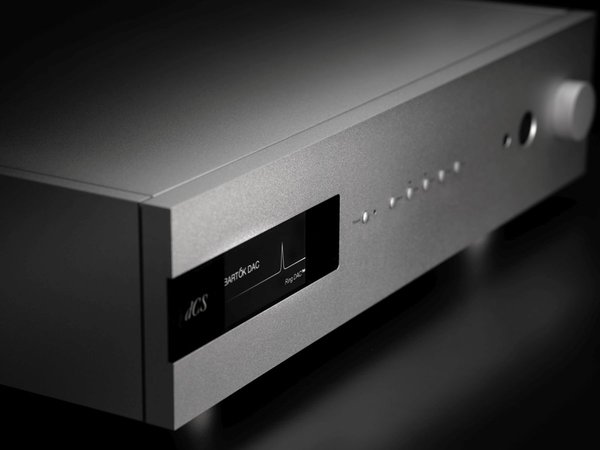
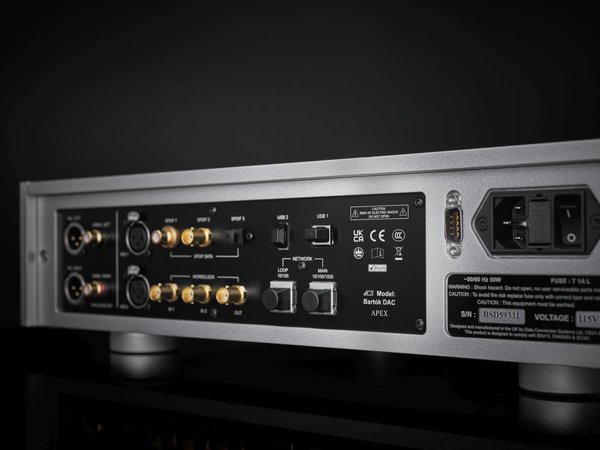
Elegant, Sleek Design
The dCS Bartók APEX DAC Headphone Amplifier features a sleek and modern design, with a solid chassis that ensures durability and minimizes interference. Available in silver or black, you can choose the color that best complements your audio setup. A large volume knob, display screen, and playback buttons adorn the front of the unit, along with two headphone jacks—a balanced 4-pin male XLR output and an unbalanced 6.35mm output. Connectivity is a breeze with the plethora of digital inputs and analog outputs on the rear panel with an input for an external word clock. Please see the specifications section for an entire list of I/Os. At 36.8lbs the Bartók APEX DAC Headphone Amplifier is a sturdy unit with four feet that stabilize the unit.
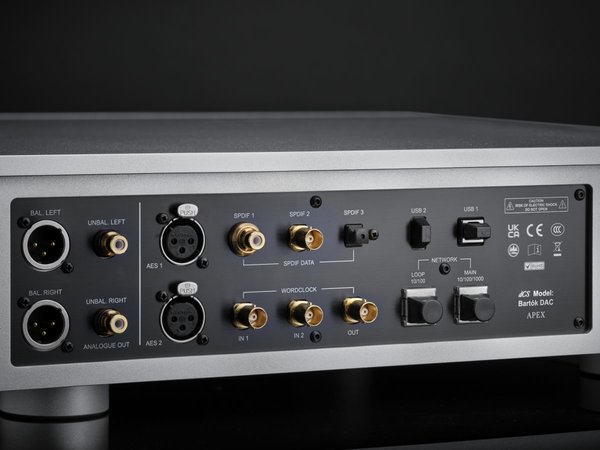
Upgraded Technology for a more Profound Experience
The Bartók APEX DAC Headphone Amplifier's performance has been enhanced with the addition of dCS' proprietary Ring DAC technology. The Ring DAC system employs a discrete, multi-bit architecture to ensure high-precision digital-to-analog conversion. Note: Existing Bartók owners can upgrade their unit using downloadable software on dCS' website.
Ring DAC upgrades include:
- Modified reference supply that feeds the Ring DAC, resulting in lower output impedance
- Enhanced the filter, summing and output stages of the Ring DAC
- Improved the symmetry of summing stages
- Created an all-new output stage
- Reconfigured the main Ring DAC circuit board
- Replaced the individual transistors on the board with a compound pair
Released in 2022, APEX is a substantial update to dCS' proprietary Ring DAC™. With the Ring DAC APEX, dCS reconfigured the circuit board to improve DSD upscaling performance as well as DSD128 support, and lower output impedance. Additionally, a new analog output stage helps to lower distortion and increase linearity. The APEX upgrade resolves the finest details and uncovers textures and subtleties that most audio systems overlook. The Bartók APEX reveals every aspect of a recording with a sense of refinement and control, bringing you closer to the music you love.
Headphone Listening Reimagined
The Bartók APEX DAC Headphone Amplifier was built for the discerning headphone listener who demands the very best from their gear. With
The Bartók's analog output stage maintains benchmark amplifier performance with true Class A operation through the amp's balanced and unbalanced outputs. The headphone amp was specially engineered to handle a vast range of headphones regardless of efficiency or impedance. Drive anything from dynamic headphones to demanding high-impedance planar magnetic headphones with ease. With a choice of four adjustable gain settings, you can adjust performance to suit your setup and tailor your listening experience even more through the Mosaic Control app, dCS' dedicated app.
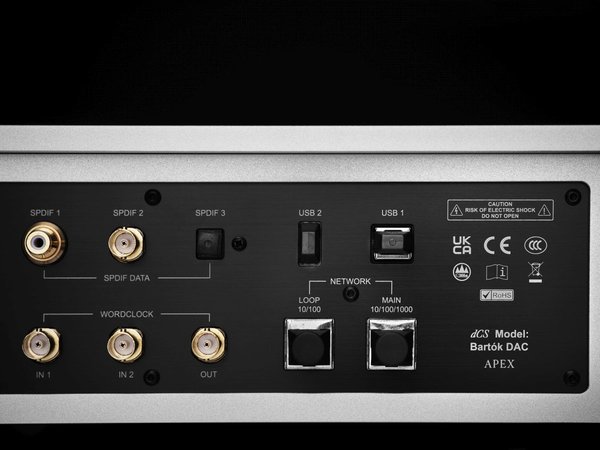
The amplifier design also features dedicated power supplies for analog and digital processing, which are isolated from the DAC section of the system for enhanced precision with minimal crosstalk and noise. This unique architecture allows for a powerful and transparent performance that uncovers the unique character and potential of your headphones.
The Bartók APEX DAC features a unique processing platform called Expanse that reimagines how sound is optimized for headphones. Expanse is an optional feature that can be engaged with a wide range of stereo recordings to provide a greater sense of realism, space, and depth. An internal master clock improves ease of use and minimizes jitter for a pristine sound reproduction every time you listen
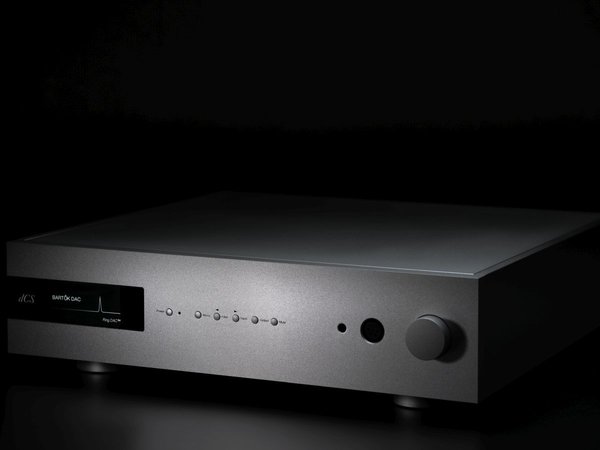
Music on Your Terms
The Bartók APEX DAC Headphone Amplifier delivers exceptional sound quality, with a highly detailed, transparent, and natural presentation. It offers a wide soundstage, excellent dynamics, and a deep, well-controlled bass response.
The Bartók APEX DAC Headphone Amplifier can adapt to serve whatever mood or music you ask it to. With its wide range of inputs and outputs, high-performance UPnP streamer, and extensive choice of filters, it offers limitless capabilities and an effortless listening experience.
Compatible with all major file formats, the Bartók APEX DAC Headphone Amplifier provides instant access to music from a wide range of streaming services, including Roon, TIDAL, Spotify, Qobuz, Deezer, and Internet Radio—just to name a few. As a Roon Ready device, it seamlessly integrates into your Roon ecosystem so you can easily enjoy music from your digital library. The Bartók APEX is also capable of playing audio files directly from personal devices or storage drives via USB, AES, or S/PDIF inputs, as well as Apple devices using Apple AirPlay.
The Bartók APEX's streaming interface supports all major lossless codecs, plus DSD in native and DoP formats, and ensures true 24-bit resolution audio when streaming via Ethernet. Playback is easily managed via the dCS Mosaic app, which allows you to access music from multiple sources and adjust the settings on your system through a single, intuitive interface. Available on all Android and Apple iOS devices, the Mosaic cControl app is supported by a powerful processing platform that runs on custom code developed by dCS. This software-driven design means its performance can be upgraded and enhanced over time, allowing dCS to add new streaming functionalities as platforms and services develop. Your Bartók APEX DAC grows with you over time as your hifi audio setup evolves and dCS technology advances.
Features
- Latest generation dCS Digital Processing Platform brings state-of-the-art signal processing and flexibility
- dCS Ring DAC™ fitted, as used in the dCS Vivaldi digital playback system
- High-quality streaming from TIDAL, Qobuz, Deezer and internet radio via the dCS Mosaic Control app
- Roon Ready, AirPlay, Spotify Connect and UPnP compatible
- USB, AES, Dual AES and S/PDIF digital audio inputs
- Headphone amplifier with balanced and unbalanced outputs, suitable for high and low impedance headphones
- Accepts encrypted SACD data from dCS Transports via Dual AES inputs. Oversampling design with switchable DSD upsampling; user-selectable PCM and DSD filters
- Multi-stage DXD oversampling design with switchable DSD upsampling; user-selectable PCM and DSD filters
- Auto clocking system improves ease of use and minimizes jitter
- Multi-stage power regulation and twin mains transformers to isolate the DAC section from the headphone amplifier
- Firmware-upgradeable for future functionality and performance upgrades
What's In the Box
- dCS Bartók APEX DAC Headphone Amplifier
- User Guide
- Software Quick Start Guide
- Quick Reference Guide for the Mosaic Control app
- Power Cable
FAQ
What's the difference between the original dCS Bartok and the APEX version?
Compared to the original version, the APEX version features an upgraded analog output stage that improves linearity and reduces distortion.
What digital formats does the dCS Bartok APEX offer?
The dCS Bartók APEX DAC Headphone Amplifier is compatible with all major file formats including PCM up to 24-bit/384kHz, DSD up to DSD256, and MQA for high-resolution audio streaming.
Can the dCS Bartok APEX drive high-impedance headphones?
Yes, the dCS Bartók APEX DAC Headphone Amplifier has a powerful internal headphone amplifier capable of driving a wide range of headphones, including high-impedance models.
Does the dCS Bartok APEX have a built-in preamplifier?
Yes, the dCS Bartók APEX DAC Headphone Amplifier can be used as a standalone preamplifier to control the volume of connected power amplifiers or active speakers.
Is the dCS Bartok APEX compatible with Roon?
Yes, the dCS Bartók APEX DAC Headphone Amplifier is Roon Ready, which means it can be seamlessly integrated into a Roon-based audio system for high-quality music playback and management.

